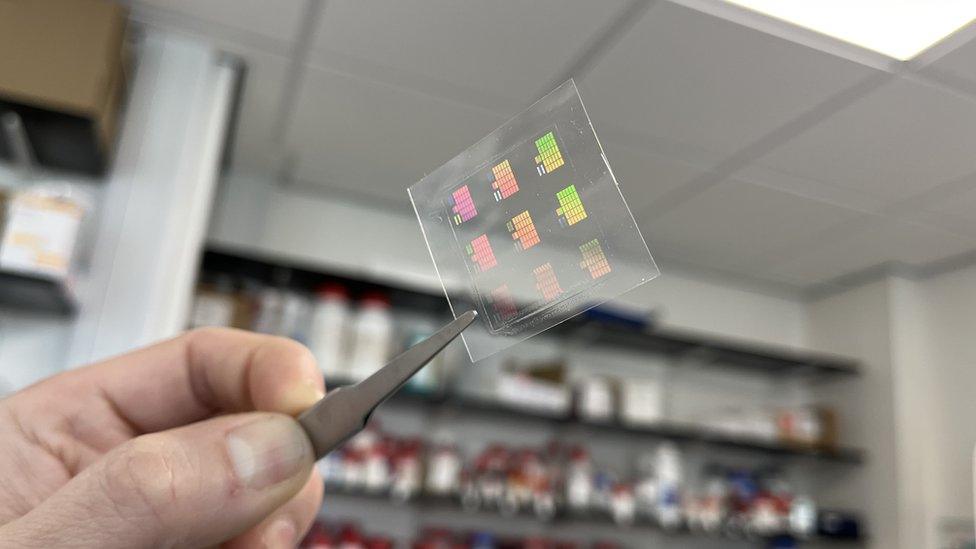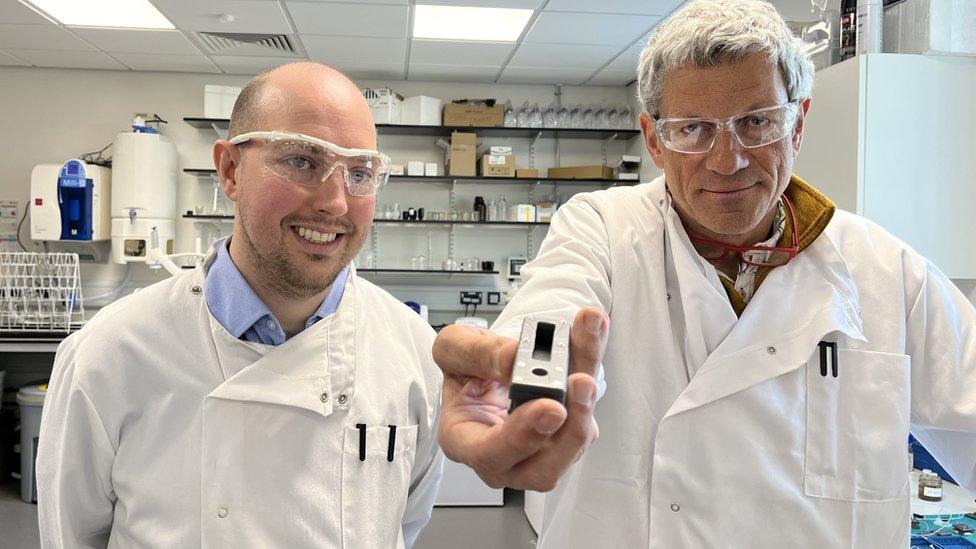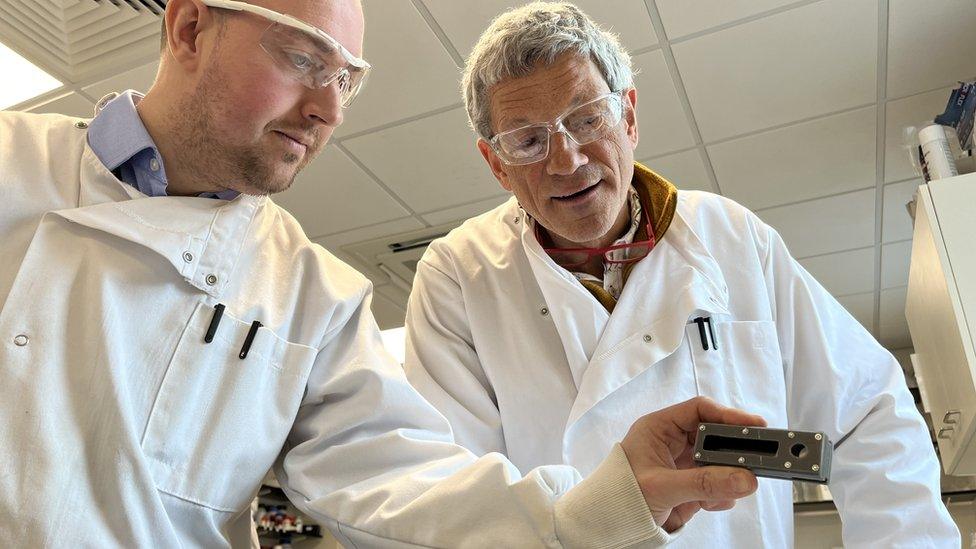University of York working on blood test to diagnose Alzheimer's
- Published
- comments

The light sensitive technology is similar to sensors used in mobile phones, according to researchers
Researchers are working to develop a blood test which they believe could diagnose Alzheimer's earlier.
The team at the University of York hope light-based technology could detect protein levels which are associated with the disease in a patient's blood.
They are also developing a handheld device to diagnose patients within seconds.
The research is being funded by the Alzheimer's Society and Alzheimer's Research UK.
Dr Steven Quinn from the University's School of Physics, Engineering and Technology, said the technology has the potential to diagnose the disease without "invasive and costly hospital procedures".
"It could also be used to improve monitoring of patients already receiving treatment for the disease, as it will be sensitive enough to identify changes in the levels of the specific proteins that serve as indicators of Alzheimer's in the bloodstream," he added.

A handheld device could diagnose patients within seconds using a simple finger-prick test
The research team at the University of York developing the new test say it will be "cheaper and as accurate and less invasive than brain scans or lumbar punctures".
The technology detects changes in the brain associated with Alzheimer's by shining light beams on the surface of a sensor that is covered with chemicals, which catch proteins present in the blood.
The device then measures changes in the properties of light which indicate when toxic proteins are present.

The cost of the new test could be comparable to that of a Covid test.
Dr Quinn said: "There are over 900,000 people living in the UK with Alzheimer's disease and that number is expected to increase to 1.6 million by 2040."
"Because the treatments are emerging, earlier diagnosis could lead to earlier intervention," he said.
The research is funded by the Alzheimer's Society and Dr Richard Oakley from the charity said dementia is the UK's "biggest killer".
He said: "A third of people living with the condition do not have a diagnosis.
"This means they are missing out on being able to access much-needed care and support, as well as potential new treatments coming down the line."
Sheona Scales, director of research at Alzheimer's Research UK said: "So far, no blood tests have been validated for use in the UK."
She said the research they were helping to fund would "provide the NHS with the evidence needed to move forward with blood tests to diagnose Alzheimer's disease".

Follow BBC Yorkshire on Facebook, external, X (formerly Twitter), external and Instagram, external. Send your story ideas to yorkslincs.news@bbc.co.uk, external.